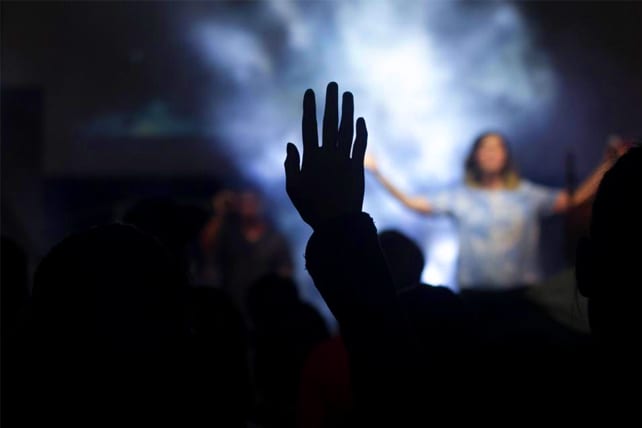Music has the inherent ability to tap into our emotions. A sick beat or a beautiful melody can mysteriously draw otherwise dormant emotions to the surface. That’s emotional worship. We all know what it feels like to climb into our car, turn up the radio and feel a surge of emotion when our favorite song comes on.
Worship leaders leverage their skills of music to surface emotions in order to knit them together with God’s truth. It’s a training ground for our emotions to be properly aligned with what God says is good and right. But this kind of role for the worship leader didn’t always exist.
What Is the Role of Emotional Worship?
In the garden, before sin darkened the scene, our emotions perfectly aligned with truth. No reconciliation or training was necessary. We were perfectly connected to God and felt toward Him exactly what we were designed to feel. But then Adam and Eve bit into a lie. Believing the lie that God was holding out on them produced a new feeling that guided Adam and Eve into betrayal. Their emotional worship, once perfectly aligned and guiding them into fellowship with God, now deceived them.
Since Adam and Eve, our emotions have become unfaithful and deceptive guides. We have lived with conflicting emotions, feeling they inform us of what is right, yet we daily experience the consequences of following our feelings.
Although deceptive guides, our emotions are gifted at helping us understand the present and helping us interpret what we experience. Jesus in the garden of Gethsemane is perhaps the best picture of our current relationship with emotions.
Let’s step into the garden of Gethsemane with Jesus. As we kneel beside Jesus in the garden we find Him praying that the Father would provide a way other than the way of the cross. We see drops of sweat and blood cascading down His face as He pleads three times for another way. We feel His disappointment as He finds His disciples sleeping instead of praying. Finally, Jesus rises. Sweat-soaked and weary, He takes determined steps toward His betrayers and the cross.
What happened in this moment? What did Jesus feel? It seems that Jesus felt anxiety. If anxiety is simply defined as looking at what is ahead and feeling that it is overwhelming, then perhaps there was no more appropriate time in human history to have experienced anxiety. Jesus knew what the cross meant. Death. Separation from the Father. Bearing the weight of all the sin of the world.
Jesus’ body and emotions painfully, yet accurately, told Him that moving forward would be overwhelming. But what did Jesus do? Though the feeling of anxiety accurately indicated what would come, He didn’t allow it to guide Him. The Father’s will was His guide and He followed, even though anxiety begged Him otherwise. This is what it means to not be anxious. It is not the absence of the feeling of anxiety, but rather the refusal to allow anxiety to rule and direct you in what to do next. Jesus’s feeling of anxiety was truthful, but, instead of causing Him to run from the Father, it pushed Him deeper into relationship with God through prayer.
What does all of this have to do with leading worship? Scripture tells us that before Jesus’ garden of Gethsemane moment He sang a hymn with His disciples (Matthew 26:30; Mark 14:26). Jesus worshiped before He wrestled in the garden. He was emotionally strengthened and prepared for what was coming by singing and aligning His emotions with God’s truth.
In many ways I believe your job is much the same. You are preparing God’s people for daily garden of Gethsemane moments—daily experiences of being tempted to follow their emotions instead of God’s truth. You are combating emotions defined by earthbound experiences with songs that draw out godly emotions and pair them with God-revealed truths. Our ability to reject emotions as our guides in the dust of life is tied to experiencing and remembering how sweet it is to worship the Lord in truth.
If you were Jesus’ worship leader, what song would you have selected to prepare Him for the garden of Gethsemane? What type of music and what instruments would you use? What truths would fill the lyrics?
Are your song selections and the emotional worship they induce properly preparing your people for all the components of a Sunday gathering, from the call to worship and the preaching of God’s Word, to communion and sending out?
This article on emotional worship originally appeared here.












